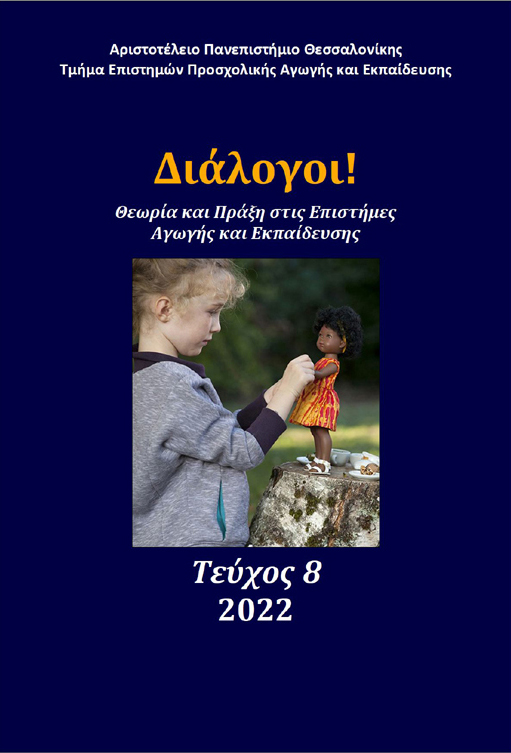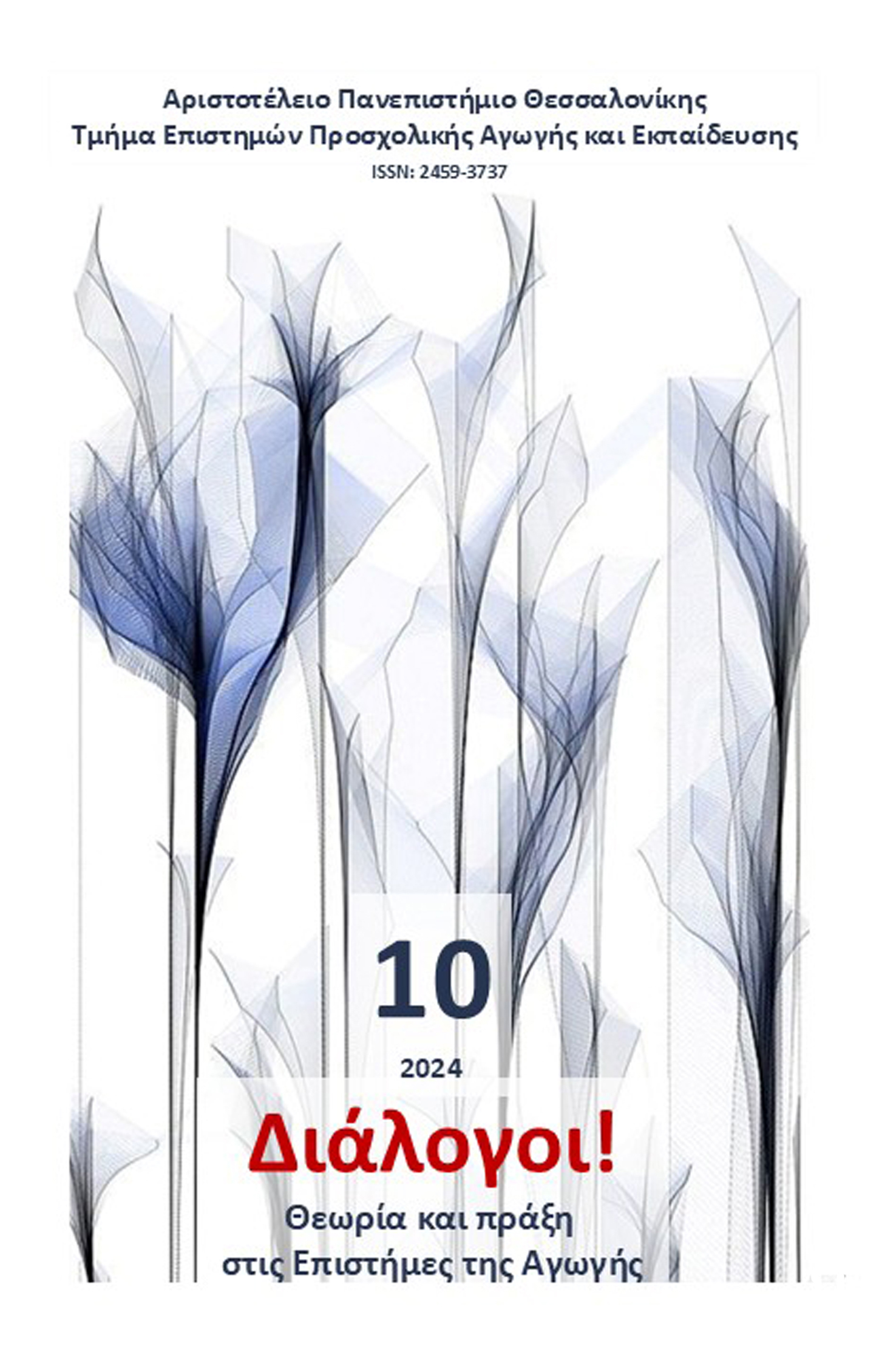Κριτική αναζήτηση ενός σύγχρονου ‘ολιστικού-μετασχηματιστικού’ μοντέλου επαγγελματικής ανάπτυξης των εκπαιδευτικών στον 21ο αιώνα

Περίληψη
Στο παγκοσμιοποιημένο κοινωνικό-εκπαιδευτικό περιβάλλον του 21ου αιώνα, οι διαρκώς αναδυόμενες εκπαιδευτικές προκλήσεις δίνουν το έναυσμα της συζήτησης για την αναθεώρηση υφιστάμενων παραδοσιακών μοντέλων επαγγελματικής ανάπτυξης των εκπαιδευτικών. Στο παρόν άρθρο επιχειρείται κριτική βιβλιογραφική ανασκόπηση της επαγγελματικής ανάπτυξης του εκπαιδευτικού του 21ου αιώνα μέσα από μία ιστορική-συγκριτική προσέγγιση και κριτική ανάλυση μοντέλων επαγγελματικής ανάπτυξης του προηγούμενου αιώνα προκειμένου να αναδειχθεί η ανάγκη προώθησης ενός σύγχρονου ‘ολιστικού-μετασχηματιστικού’ μοντέλου που θα ανταποκρίνεται στις σύγχρονες προκλήσεις και διεθνείς επιταγές για την υποστήριξη και ενδυνάμωση του σύγχρονου εκπαιδευτικού σε επίπεδο γνώσεων, δεξιοτήτων και αξιών μέσα από μία διαρκή αναστοχαστική και μετασχηματιστική διαδικασία προσωπικής και συλλογικής επαγγελματικής ανάπτυξης.
Λεπτομέρειες άρθρου
- Πώς να δημιουργήσετε Αναφορές
-
Τζώτζου Μ., Πούλου Μ., Καραλής Θ., & Υφαντή Α. (2022). Κριτική αναζήτηση ενός σύγχρονου ‘ολιστικού-μετασχηματιστικού’ μοντέλου επαγγελματικής ανάπτυξης των εκπαιδευτικών στον 21ο αιώνα. Διάλογοι! Θεωρία και πράξη στις επιστήμες αγωγής και εκπαίδευσης, 8, 126–146. https://doi.org/10.12681/dial.29134 (Original work published 21 Σεπτέμβριος 2022)
- Τεύχος
- Τόμ. 8 (2022)
- Ενότητα
- Επιστημονική Αρθογραφία

Αυτή η εργασία είναι αδειοδοτημένη υπό το CC Αναφορά Δημιουργού – Μη Εμπορική Χρήση – Παρόμοια Διανομή 4.0.
Οι συγγραφείς των άρθρων που δημοσιεύονται στο Διάλογοι! Θεωρία και Πράξη στις Επιστήμες Αγωγής και Εκπαίδευσης διατηρούν τα δικαιώματα πνευματικής ιδιοκτησίας επί των άρθρων τους, δίνοντας στο περιοδικό το δικαίωμα της πρώτης δημοσίευσης. Άρθρα που δημοσιεύονται στο Διάλογοι! Θεωρία και Πράξη στις Επιστήμες της Αγωγής και Εκπαίδευσης διατίθενται με άδεια Creative Commons 4.0 και σύμφωνα με την άδεια μπορούν να χρησιμοποιούνται ελεύθερα, με αναφορά στον/στη συγγραφέα και στην πρώτη δημοσίευση για μη κερδοσκοπικούς σκοπούς και με δικαίωμα τροποποίησης μόνον με παρόμοια διανομή (αν αναμείξετε, τροποποιήσετε, ή δημιουργήσετε πάνω στο υλικό, πρέπει να διανείμετε τις δικές σας συνεισφορές υπό την ίδια άδεια όπως και το πρωτότυπο).
To Τμήμα Επιστημών Προσχολικής Αγωγής και Εκπαίδευσης του Αριστοτέλειου Πανεπιστημίου Θεσσαλονίκης και το Εθνικό Κέντρο Τεκμηρίωσης διατηρούν το δικαίωμα να δημοσιεύουν, να αναπαραγάγουν, να παρουσιάζουν στο κοινό, να διανέμουν και να χρησιμοποιούν άρθρα που δημοσιεύονται στο Διάλογοι! Θεωρία και Πράξη στις Επιστήμες Αγωγής και Εκπαίδευσης σε οποιοδήποτε μέσο και μορφή είτε μεμονωμένα είτε ως μέρη συλλογικών έργων, για όλο το χρόνο διάρκειας προστασίας της πνευματικής ιδιοκτησίας και για όλες τις χώρες του κόσμου.
Αυτό περιλαμβάνει ενδεικτικά, και όχι αποκλειστικά, το δικαίωμα δημοσίευσης των άρθρων σε τεύχη του περιοδικού Διάλογοι! Θεωρία και Πράξη στις Επιστήμες Αγωγής και Εκπαίδευσης, αναπαραγωγής και διανομής μεμονωμένων αντιγράφων των άρθρων, αναπαραγωγής ολόκληρων των άρθρων σε άλλη έκδοση του Τμήματος Επιστημών Προσχολικής Αγωγής και Εκπαίδευσης του Αριστοτέλειου Πανεπιστημίου Θεσσαλονίκης και του Εθνικού Κέντρου Τεκμηρίωσης και αναπαραγωγής και διανομής των άρθρων ή περίληψης αυτών με χρήση πληροφορικού συστήματος αποθετηρίου.



